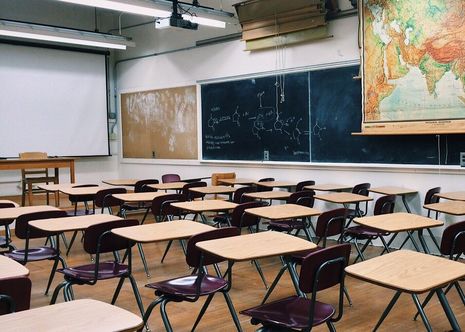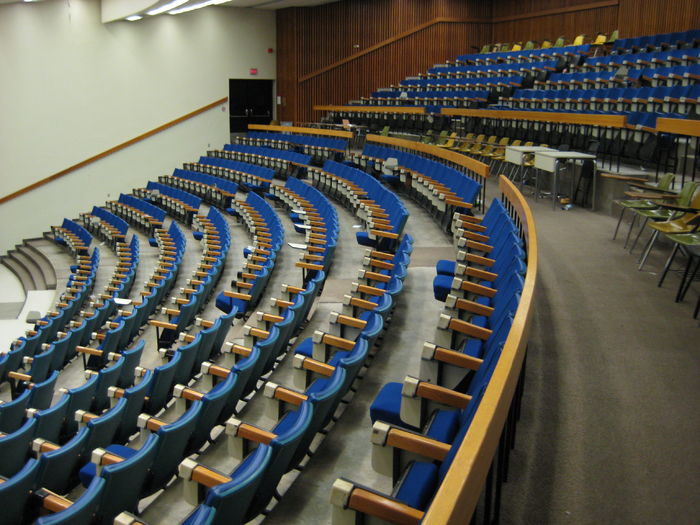Educational inequality has been exacerbated by remote learning
Phoebe Campbell argues that, whilst necessary to protect public health, the closure of schools will exacerbate socioeconomic inequalities in education, with familial circumstances having an increased impact on remote teaching.

Boris Johnson’s address on 10 May outlined the conditional plan for the phased reopening of society, confirmed in last Sunday’s daily conference. He stated his hopes that some pupils, particularly the youngest children and those preparing for secondary education, will be able to return to school for some face-to-face teaching before the summer holidays.
Whilst his intention will no doubt benefit many and help control the risk of transmission by staggering the return of students, it has been met with huge backlash. Concerns have been raised over whether the benefits of re-opening schools will outweigh the negatives. As information concerning the transmissibility between children is in no way fully extensive, fear amongst families has escalated, questioning whether the government’s decision is based solely on public health.
"...disparities in socioeconomic background putting disadvantaged children at risk of falling behind academically. "
Over the past few months, we have been forced to deal with the unsettling reality that the virus does in fact discriminate and does so along painfully familiar lines. Indeed, COVID-19 has exposed the deep-rooted inequalities in our education system, with disparities in socioeconomic background putting disadvantaged and vulnerable children at risk of falling behind academically.
Since the lockdown began, schools have shut their gates to all but the most vulnerable and children of key workers, forcing the majority to continue their education remotely. Although this measure has been put in place to keep people safe, understandably, it is not without its challenges. The effectiveness of home-schooling during this period of chronic instability depends crucially upon reliable Internet. However, the access to these fundamental resources for online learning is by no means universal, hindering those without the necessary means to continue their education online in any substantial way. Around 60,000 11-18yr olds in the UK lack any internet connectivity at home whilst around 700,000 are in homes without any laptop, desktop or tablet.
Learning at home also heavily relies upon parents’ active involvement in overseeing and assisting with the online tuition. Overnight, parents became teachers, faced with the challenge of adjusting to new responsibilities whilst also trying to manage their own jobs. Wealthier parents may be able to afford private tuition over Skype or Zoom, but this is not the case for the majority up and down the country. Single parents on low wages are struggling to find the time to help their children’s educational needs, being asked to choose between supporting their child physically by going to work, or educationally by helping them with their school work. There are also obstacles faced by those for children whose parents speak little to no English; these children had previously relied primarily on teaching staff to grow in their written and spoken language skills, which will now be stunted as these parents are unable to support their children with a language that is not their first. It may also be difficult to find a quiet area of the house to replicate the library or classroom where children are used to working. Before the coronavirus outbreak, 125,000 children in England were in temporary accommodation whilst 90,000 families were sofa-surfing.
"Before the coronavirus outbreak, 125,000 children in England were in temporary accommodation whilst 90,000 families were sofa-surfing."
The closure of schools due to the COVID-19 crisis will not only have an impact on term-time but also on development throughout the holidays. Karl Alexander, a sociologist from the John Hopkins University, tracked the progress of 650 first-graders from the Baltimore public school system, studying how students from different socio-economic backgrounds scored on maths and reading tests over 5 years. After the first summer break, the reading scores of children from high-income backgrounds increased by 15.38 whilst the poorest children returned with a reduction of 3.67 points. He attributes this to the educational consequences in parenting styles across the socio-economic ladder. Whilst a middle-class parenting style may involve active attempts to ‘foster and assess a child’s talents, opinions and skills’, due to luxuries afforded by time and finances, poorer parents are forced to follow a strategy of ‘accomplishment of natural growth’, confined by the restraints of their occupation. ‘Poor kids may out-learn rich kids during the school year. But during the summer, they fall far behind’, warns Gladwell in his book Outliers, a concept which may become emblematic of a problem nationwide, rather than the localised effects of the damage done in Baltimore.
As the government is occupied – and rightly so – with ways to fight the virus whilst simultaneously preventing an economic catastrophe, some might say that the impact of the pandemic upon our education system has been somewhat disregarded. Whilst the Education Secretary, Gavin Williamson, has said, ‘I will do everything I can to make sure that no child, whatever their background, falls behind in their education as a result of coronavirus’, COVID-19 has exacerbated educational inequality which is rife within the UK and will no doubt become more pronounced as the virus continues.
We must think of strategies to mitigate this. It is vital that the government puts centralised steps in place now so that the education system can cope by September. Whether this is making funding available to provide intensive support when schools fully reopen to deal with the consequences of lockdown or inviting children at most risk of falling behind to come into school, it is clear that we must find solutions. Of course, we must ensure that it is safe before allowing a mass return to schools, but we must also think of ways to help children – and their parents – in their educational progress.
As the virus continues to affect our daily lives, perhaps we should see it not as an obstacle but rather as a catalyst for change; to reflect upon our education system as a whole, looking at methods of reform to better cater for those from different socio-economic backgrounds. Yet, we must ask ourselves: should it have taken a pandemic to unearth the blindingly obvious – that the rich will be able to afford to continue their children’s development when state-sponsored education is halted and that the poor will not? If all children are to continue their development to a similar level as before, real and sizeable change is required in Westminster to remedy the inequalities in the education system.
 Interviews / You don’t need to peak at Cambridge, says Robin Harding31 December 2025
Interviews / You don’t need to peak at Cambridge, says Robin Harding31 December 2025 News / Downing investigates ‘mysterious’ underground burial vault 29 December 2025
News / Downing investigates ‘mysterious’ underground burial vault 29 December 2025 News / Unions protest handling of redundancies at Epidemiology Unit30 December 2025
News / Unions protest handling of redundancies at Epidemiology Unit30 December 2025 Lifestyle / Ask Auntie Alice29 December 2025
Lifestyle / Ask Auntie Alice29 December 2025 Features / ‘Treated like we’re incompetent’: ents officers on college micromanagement30 December 2025
Features / ‘Treated like we’re incompetent’: ents officers on college micromanagement30 December 2025









